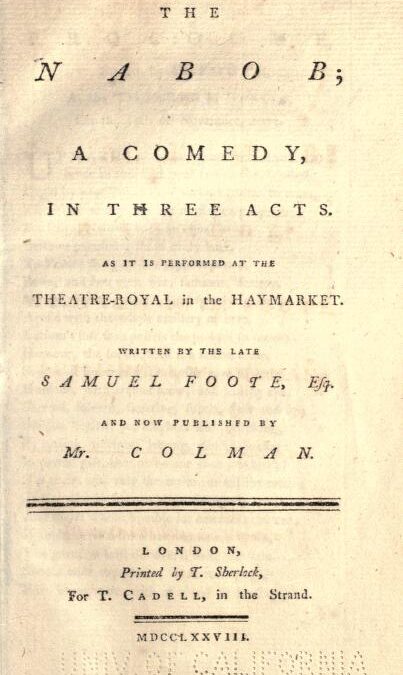 Samuel Foote’s The Nabob, now obscure, is the first linkage of picnic with the euphemism “nick-nack.” He used in the sense of dining en piquenique, which suggests familiarity. The alliterative corruption is meant to be humorous for those in the know...
Samuel Foote’s The Nabob, now obscure, is the first linkage of picnic with the euphemism “nick-nack.” He used in the sense of dining en piquenique, which suggests familiarity. The alliterative corruption is meant to be humorous for those in the know...
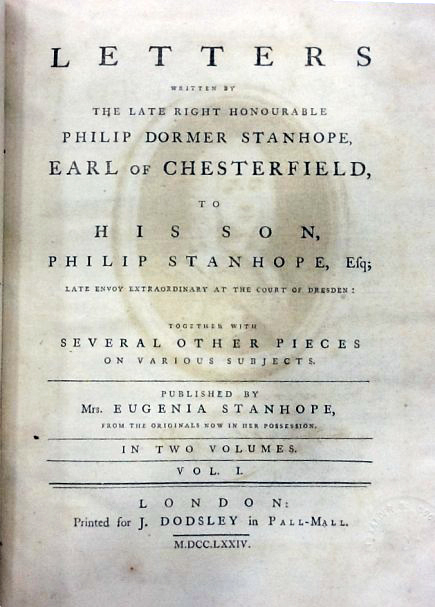 Philip Dormer Stanhope, Lord Chesterfield, is the second person to use picnic in English and spell it in a modern way. His son Philip wrote that he attended a picnic gathering at Madame Valentin’s salon, but his 1748 letter is lost. His father’s letter is not and was...
Philip Dormer Stanhope, Lord Chesterfield, is the second person to use picnic in English and spell it in a modern way. His son Philip wrote that he attended a picnic gathering at Madame Valentin’s salon, but his 1748 letter is lost. His father’s letter is not and was...
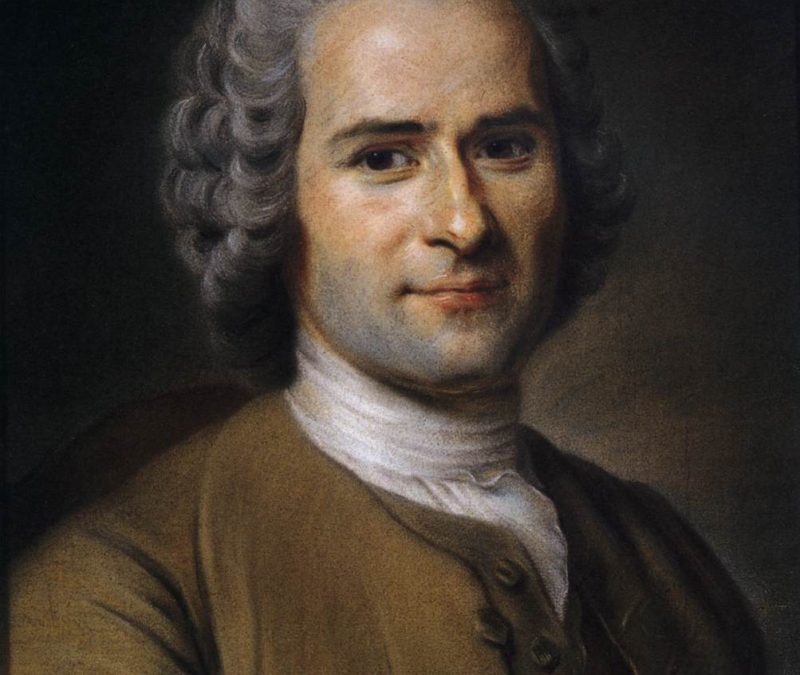 Rousseau and Abbé Etienne Condillac dined en piquenique sometime in 1745 or 1747. The date is uncertain because Rousseau is careless with dates related to the incident twenty years after in Confessions. Hard up and living in Paris in the rue Saint-Denis, Rousseau...
Rousseau and Abbé Etienne Condillac dined en piquenique sometime in 1745 or 1747. The date is uncertain because Rousseau is careless with dates related to the incident twenty years after in Confessions. Hard up and living in Paris in the rue Saint-Denis, Rousseau...
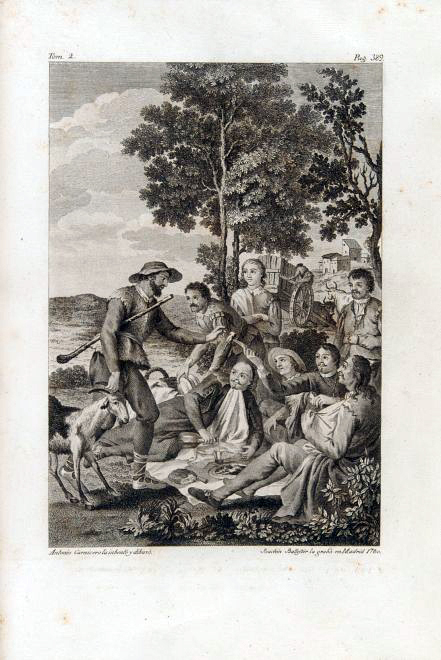 Cervantes’s merienda looks like a picnic on the grass. It occurs while, Don Quixote and Sancho engage in a spirited discussion of the uses of enchantment and the power of imagination with the Canon, the curate, and the barber. They sit on the grass waiting for...
Cervantes’s merienda looks like a picnic on the grass. It occurs while, Don Quixote and Sancho engage in a spirited discussion of the uses of enchantment and the power of imagination with the Canon, the curate, and the barber. They sit on the grass waiting for...
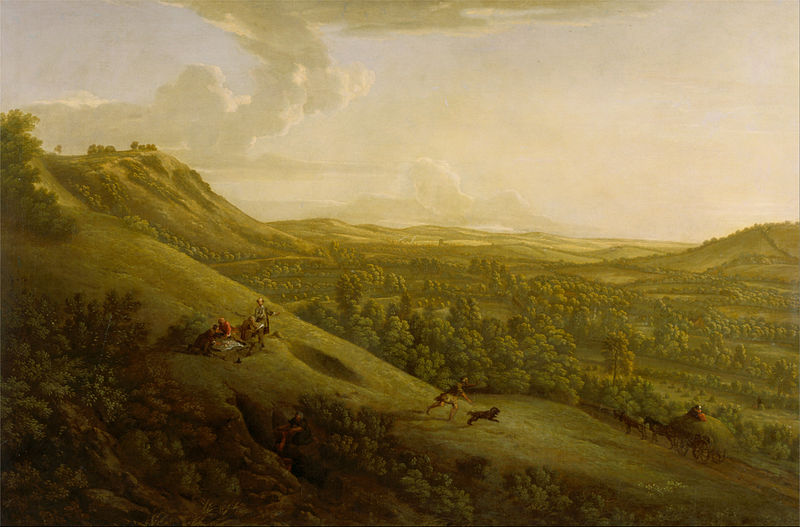 Even if George Lambert knew the French word pique-nique, he would not describe an outing on the grass because it was not used in this context. By French custom, it was an indoor meal. Moreover, there is no evidence the English used pique-nique in writing or vocabulary...
Even if George Lambert knew the French word pique-nique, he would not describe an outing on the grass because it was not used in this context. By French custom, it was an indoor meal. Moreover, there is no evidence the English used pique-nique in writing or vocabulary...
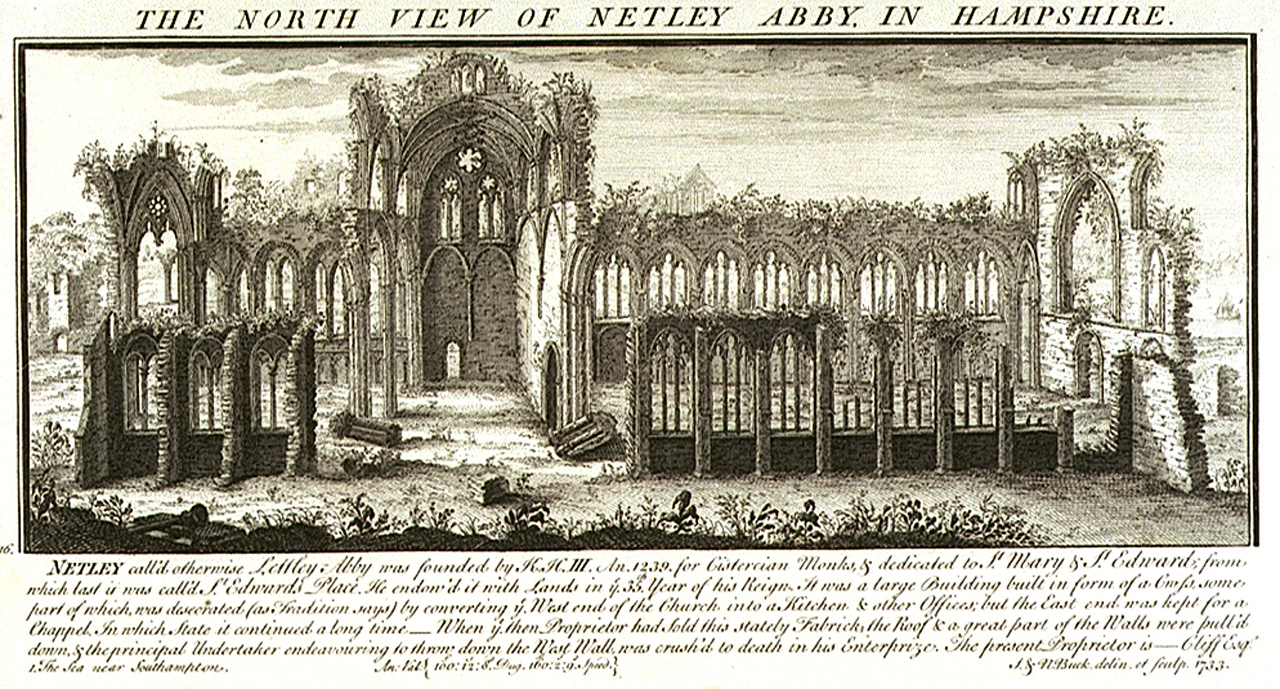 Writing to his dear friend (and probable mistress) Martha Blount, Pope related his adventure at Netley Abbey and his alfresco luncheon there. He does not call it a picnic because the word was not used in English parlance until 1806. (See Harris’s The happy...
Writing to his dear friend (and probable mistress) Martha Blount, Pope related his adventure at Netley Abbey and his alfresco luncheon there. He does not call it a picnic because the word was not used in English parlance until 1806. (See Harris’s The happy...
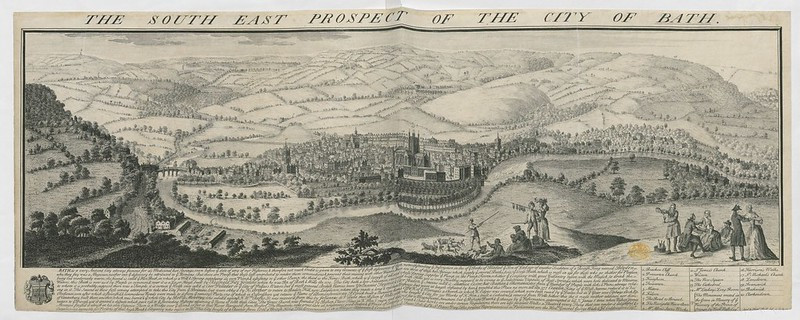 This view of Bath from the southeast by Samuel and Nathaniel Buck shows the distant city from the hills above the River Avon. Beneath the view is a brief history of the city to 1734. Though the Bucks did not have the word picnic, they embellished with shepherds and...
This view of Bath from the southeast by Samuel and Nathaniel Buck shows the distant city from the hills above the River Avon. Beneath the view is a brief history of the city to 1734. Though the Bucks did not have the word picnic, they embellished with shepherds and...
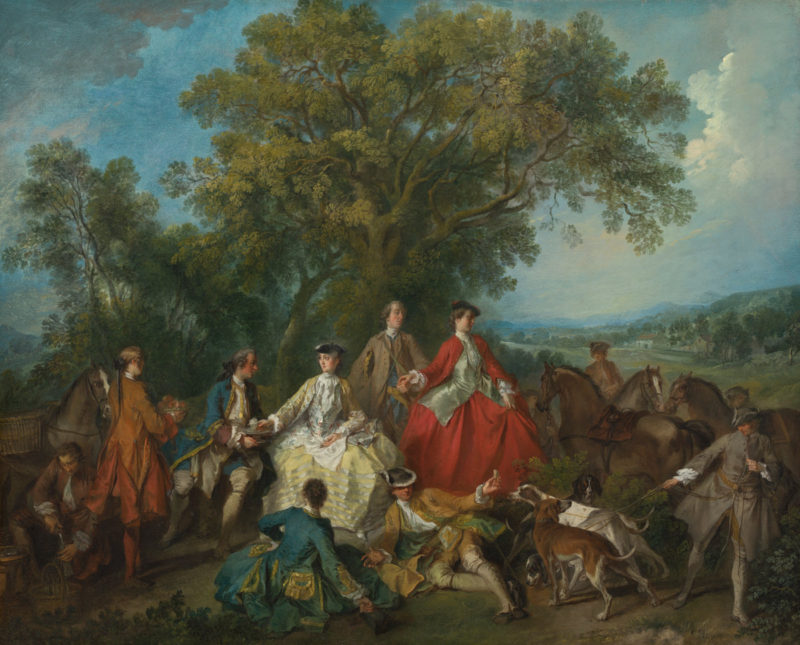 Because the scene is obviously a picnic, the National Gallery of Art’s title, The Picnic after the Hunt, is apt. But Lancret, whose language was French, would not have used pique-nique because it refers to an indoor dinner. More likely, he would have titled un repas...
Because the scene is obviously a picnic, the National Gallery of Art’s title, The Picnic after the Hunt, is apt. But Lancret, whose language was French, would not have used pique-nique because it refers to an indoor dinner. More likely, he would have titled un repas...
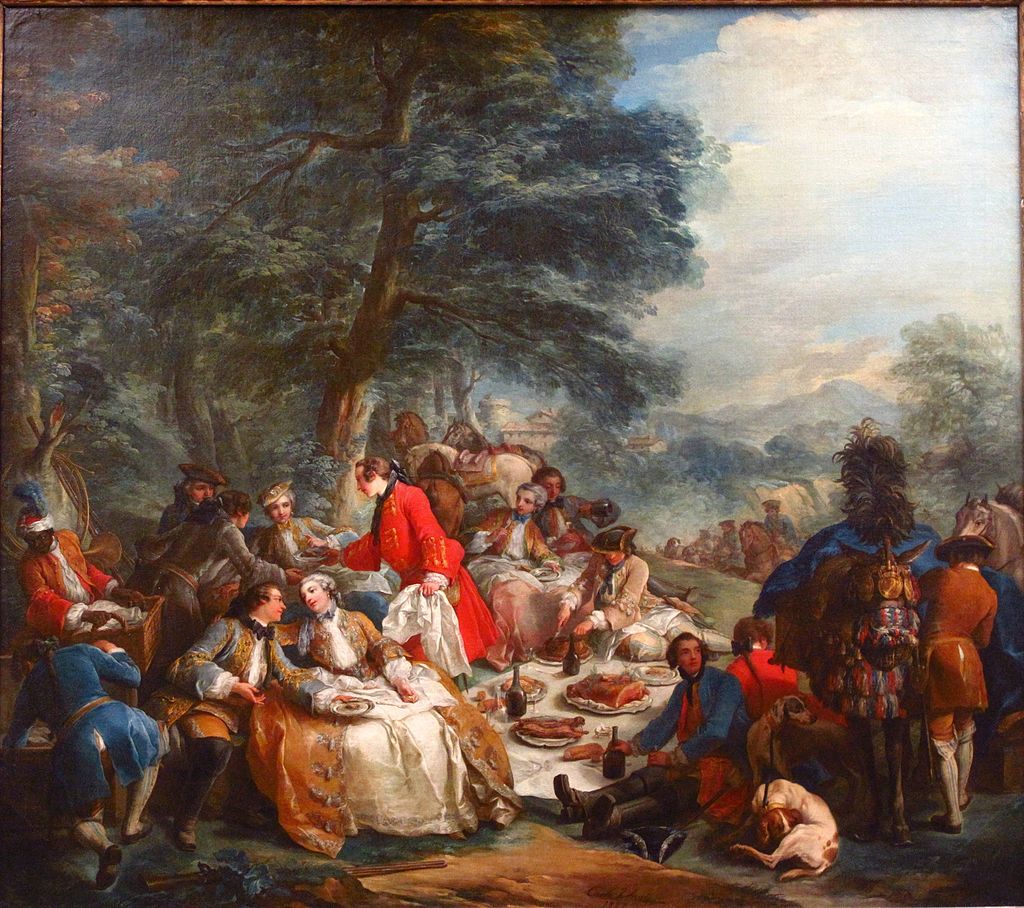 As usual among the French, a halt on the hunt is never referred to as a picnic, although that’s what it is. Van Loo’s Halte de chasse is a narrative of a stop during the hunt, at which the ladies meet the hunters at a predetermined place, called a tryst,...
As usual among the French, a halt on the hunt is never referred to as a picnic, although that’s what it is. Van Loo’s Halte de chasse is a narrative of a stop during the hunt, at which the ladies meet the hunters at a predetermined place, called a tryst,...
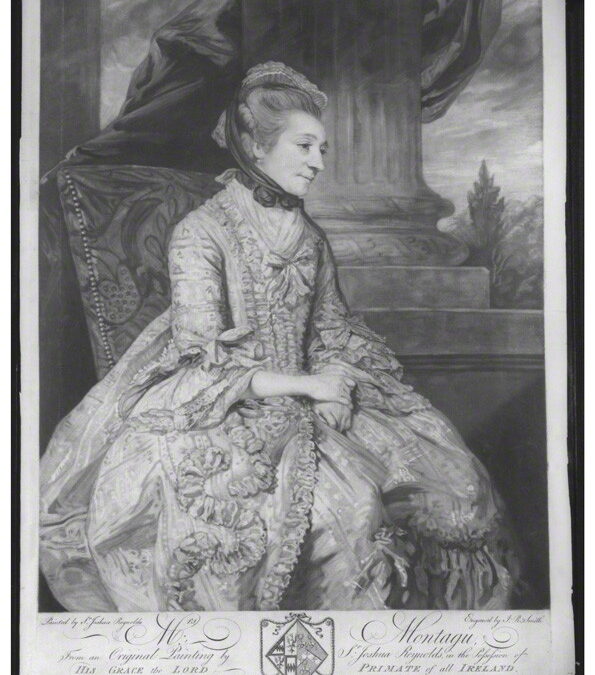 Montagu “ate a cold loaf,” which suggests a synonym for picnicking, a term that has not survived. She wrote the word in her diary for 1752 while visiting a ruined 12th Century priory in Berkshire being remolded as her residence. Emily J. Climenson, editor of Montagu’s...
Montagu “ate a cold loaf,” which suggests a synonym for picnicking, a term that has not survived. She wrote the word in her diary for 1752 while visiting a ruined 12th Century priory in Berkshire being remolded as her residence. Emily J. Climenson, editor of Montagu’s...











